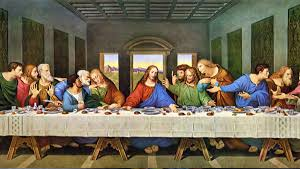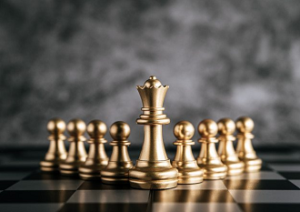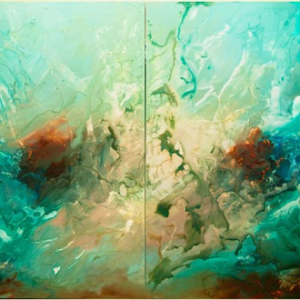
The heart and beliefs
The heart is a vital organ, it irrigates blood throughout the organism reaching all the cells of the human body, when we talk about beliefs (they are also hidden in objects of human knowledge, we believe that something is a certain “way”) we do not we just talk about faith.
throughout the organism reaching all the cells of the human body, when we talk about beliefs (they are also hidden in objects of human knowledge, we believe that something is a certain “way”) we do not we just talk about faith.
Byung-Chul Han, when carrying out his analysis based on the classic authors of Western philosophy, approaches a perspective of what he will call “affective tone”, focusing mainly on Heidegger.
His book, unlike others that are just essays, has “Heidegger’s heart: on the concept of affective tonality in Martin Heidegger” (Ed. Vozes, 2023), his first book in my opinion, with a new, human and spiritual analysis. even spiritual at the core of Western philosophy.
Part of a concept dear to Judeo-Christian civilization, which is that of circumcision, but circumcision of the heart and not of the failed organ (the skin attached to the beginning of the penis), it is necessary to remember that although it is a male organ, it is an emblem of power, of authority and desire, was culturally a warlike culture.
The part of his vision with his eastern vision and that has a spiritual sense for his entire philosophical question, Han will develop that it is the circumcision of the heart, that which modulates and governs affection, circumcision has a different meaning than what is commonly spoken, the controversy between Christians and Jews at the beginning of the Christian era, is the circumcision of the heart.
Circumcision is the act of removing the skin of the male sexual organ, but even in the biblical sense it was the skin of the heart, in Deuteronomy it reads: “Circumcise therefore the foreskin of your heart, and no longer stiffen your neck” (Dt 10,6), citing in the epigraph of the first chapter of the book: “Circumcision of the heart” (Han, 2023, p. 7).
Thus, “this circumcision frees the heart from subjective interiority” (Han, 2023, p. 11), and there is a surprising preliminary conclusion in Heidegger: “Heidegger’s heart, on the other hand [confronts with Derrida], listens to one voice , follows the tonality and gravity of the “one, the only one that unifies” (Han, 2023, p. 14-15), for him it is an “ear of his heart” and thus there is something strong spiritual in this.
It is there that the human being finds his essence: “he remains in tune with that from which his essence is determined. In the tuning determination, man is affected and called by a voice that sounds all the purer the more silently it resonates through the sonant” (Han, 2023, p. 15) literally quoting Heidegger.
He will not say that it is faith, and it reveals the Buddhist influence of his thought, the author’s only link, in my opinion, with idealism, because in Buddhism there is only a personal elevation, there is no Person on the other side, who resonates through the resounding, that voice of the Holy Spirit.
The author clarifies the disagreement between Derridá and |Heidegger: “The ‘polyphony’ that Derrida opposes to totality does not exclude tonality” (pg. 16) we would say if these authors: Han, Derrida and Heidegger were Christians, that Heidegger and Han would be monotheists and Derrida would be polytheist, but it is clear that this “resounding voice” is not that of God, but from within.
Han, B.C. (2023) Heidegger’s Heart: on the concept of affective tone in Martin Heidegger. Trans. Rafael Rodrigues Garcia, Milton Camargo Mota. Brazil, Petrópolis: Vozes.
Form and content
Modern philosophy has separated the form from the content, just as a label is separated from an ingredient that exists in a bottle, but this comes from the reduced understanding of what matter is, the hylé of the Greeks, whose thought in Aristotelian terminology interconnects them in hylemorphism (ὕλη, hýle = “matter”; μορφή, morphé = “form”).
the content, just as a label is separated from an ingredient that exists in a bottle, but this comes from the reduced understanding of what matter is, the hylé of the Greeks, whose thought in Aristotelian terminology interconnects them in hylemorphism (ὕλη, hýle = “matter”; μορφή, morphé = “form”).
For this to have an anthropological scope, necessary for the discourse on cultural diversity, it is necessary to link act and power, as Thomas Aquinas did, where matter is not what we today designate (like substance, for example), but rather what is as a possibility or in potential, written like this by Thomas: “matter est id quod est in potentia” (matter is that which is in potential) (THOMAS, ST I q.3 a.2 c), in current terms, while It’s not an act, it’s just a given.
Thus the act is the existence of fact, or the action itself, that is, “forma est actus (form is act) (ST I q.50, a.2, obi.3), so we let ourselves be shaped by ideas, actions and thoughts that can be deeper or shallower, based on just a few words.
Thus the articulation of the binomials power x act and matter x form is in this way, “matter is nothing but power, form is that through which something is, as it is the act” (THOMAS, ScG II, c.43), these Categories give a distinction from fundamental metaphysics, and anthropologically mean that one thing is the possibility of existing or acting: power or matter, another thing is actually existing or acting: act or form.
Some modern theologies want to separate body and soul, this is without eschatological and biblical foundation, otherwise the human figure of Jesus would be divided into two: the divine and the human, which would be in opposition and would fight against each other, and this is why the Christian anthropology must be rigorously unitary, as it is in Thomas Aquinas.
M matter and form (seen in this new aspect linked to content and essence), without its actual existence (form) the body would not even exist, but only the possibility of existing (potentially) makes it exist in act, this unity is radical, since the necessary condition for its existence is the body, so spirituality is not just “body” there is an essence in it.
It is fundamental to understanding Christian anthropology, written clearly by Thomas: “The human being is not just a soul, but something composed of soul and body” (THOMAS, ST I q. 75 a 4c), if on the one hand not all materialism (which is not hylemorphism) denies the existence of the soul, much bad theology seeks to deny the existence of the body, it is the modern dualistic relationship, crystallized in objectivity and subjectivity, in which both are mutilated, so they were not “shaped” with a spirit new.
According to Thomas Aquinas, human living bodies and their actual existence (form, also called by him the intellective soul) is immortal, unlike other non-human living bodies, whose existence has a beginning and an end, not the eschatological end, but the finalist end of an interruption, as all humans die, and for him death is explained as a provisional disability through which we pass into an immortal existence and overcome the radical disability of the living body through death.
The metaphor of the potter that transcends the simplistic analysis of simple adherence (Jer 18, 3-4): “I went to the potter’s house, and behold, he was working at the wheel; When the vase he was molding with clay broke down in his hands, he was once again making another vase out of that material, as seemed best to his eyes.”
AQUINAS, T. (2001-2006) Suma Teológica. Brazil São Paulo: Loyolla, 8 v.
Contemplation and treasures
 No, it is not about the art of observing nature or the universe, as the act of observing is also an “active life” as there will certainly not be any interpretation or detail that catches our attention.
No, it is not about the art of observing nature or the universe, as the act of observing is also an “active life” as there will certainly not be any interpretation or detail that catches our attention.
It is about other meanings: listening without interpreting, looking with a purified gaze and understanding what is incomprehensible to human reason, so it is not a rational attitude, nor a madness or sensitive delirium, it is an exercise of “inactivity” writes Byung- Chul Han.
The author writes in Vita Contemplativa: ou sobre a inativa (Han, 2023, p. 11): “Inactivity constitutes the Humanum. What makes doing genuinely human is the amount of inactivity in it. Without a moment of hesitation or restraint, acting degenerates into blind action and reaction. Without rest, a new barbarism emerges.” (above the painting by Rembrandt The Philosopher).
Therefore, contemplative inactivity is not to be confused with laziness, absence of action, but a rest for clairvoyant action and deep speech, says the author: “It is silence that gives depth to speech. Without silence there is no music, but only noise and noise. Play is the essence of beauty. Where only the scheme of stimulus and reaction, of lack and satisfaction, of problem and solution, of objective and action, prevails, life is reduced to survival, to naked animal life” (idem) and it is not by chance that it is confused with current modern life .
We are not machines always destined to function, the true life of conscious action begins when the concern with survival ceases (also in the sense of prolonging the experience) and the need for raw and non-bare life arises.
The confusion arose because of the confusion between history and culture, not the history of ideas (in the sense of the Greek eidos), but that which ignores culture and deals only with the pleasure, power and oppression of people, says the Han: “ action is, in fact, constitutive for history, but it is not the formative force of culture” (Han, 2023, p. 12) it may even be a consequence, but made of silent reflection it is just noise and impulsive manifestation.
And he adds in the same passage: “Not war, but celebration, not weapons, but jewelry, are the origin of culture. History and cultural do not coincide” (Han, idem).
“Jewelry” may seem strange, but the core of our culture is ornamental. It is situated beyond functionality and utility. With the ornamental that is emancipated from any purpose or utility, life insists on being more than survival” (idem).
This is the biblical example of eternal life, where the narrator explains Jesus’ speech: the kingdom of God (Mt 13:44) “is like treasure hidden in the field. A man finds him and keeps him hidden. Filled with joy, he goes, sells all his possessions and buys that field” and he will also say this about a pearl buyer who finds a large pearl.
HAN, Byung-Chul. (2023) Contemplative Life. Trans. Lucas Machado, Brazil, RJ: Petropolis.
Build a life and not exclude
Both Nietzsche in The Gay Science and Peter Sloterdijk’s Post-God stated the death of God, in fact it is just an attempt to kill God, because if he does not exist we cannot kill him and if he exists he is immortal, so we can only just erase it from our mind temporarily as it will come back intuitively, the proof is that atheists do not ignore Him.
Sloterdijk’s Post-God stated the death of God, in fact it is just an attempt to kill God, because if he does not exist we cannot kill him and if he exists he is immortal, so we can only just erase it from our mind temporarily as it will come back intuitively, the proof is that atheists do not ignore Him.
Nietzsche’s text is clear, but it was also distorted: “The mad man threw himself into their midst and pierced them with his gaze. ‘Where has God gone’, he shouted, ‘I will tell you now! We killed him – you and me. We are all your killers! But how did we do this? How do we manage to drink the sea entirely? Who gave us the sponge to erase the horizon? What did we do, untying the earth from its sun? Where are you moving now? Where do we move? Away from all the suns?” (Nietzsche, The Gay Science, § 125)
Thus, not being able to kill him, they destroy his “symbolic” values, such as the Holy Supper in the Olympics, for example, or distorting the true history of the God-man: Jesus, as did the idealist theology of Ludwig Feuerbach that we recently posted, created an “absolute” empty and abstract, which cannot be God as a trinitarian person.
However, the reaction to the Hegelian Theocide, that of Feuerbach, in which God only exists in the mind and thus is something of ideal thought and only with idealistic “transcendence” do we reach him, there is the religious reaction of closing oneself in the “community of the elect” , of God’s favorites, those chosen by criteria that a certain community determines and the rest are lepers, public sinners and unworthy of the “kingdom”, bad seed.
The parable of the tares and the wheat is clear, both are born in the same environment, but one does not bear fruit, will not participate in the wheat harvest and will be separated like chaff.
In a way, the reaction to this elevated God, distant from men, “all powerful” is nothing more than a vision of power that is also mundane and temporary and a form of despiritualized asceticism, the life of “exercises” as advocated by Peter Sloterdijk.
Spiritual truth is one in which everyone is included, there is unity and respect for all and no one is seen as a leper or bad seed, this is a Pharisaic interpretation, but it is clear that good seed bears good fruit so one can look at reality in its own way. back, but without prejudiced or exclusionary judgment.
Founded on perfectionism and extreme moralism, morality is important and should not be denied, however, taken to the extreme it makes “addiction” much closer and more likely to fall into it, that is, they are in fact false moralists because they are unable to put into practice what they defend, and it is these false exercises that lead to a practice of deviations and moral aberrations.
The union of these concepts with true humanism, one whose inspiration is divine, cannot and should not lead to attitudes of exclusion, isolation and lack of charity.
Everything has to be thought of in a balanced way, from politics to religiosity, from family to social life, from social action to contemplation.
Acts of sabotage and opening of the Olympics
Hours before the opening of the Paris Olympics, several “acts of sabotage” were carried out in a “prepared and coordinated” manner, affecting France’s railway lines, French Prime Minister Gabriel Attal described the event, according to French sources, as “massive and serious” and thanked the firefighters and expressed indignation at the disruption to the movement of tourists and French people.
Olympics, several “acts of sabotage” were carried out in a “prepared and coordinated” manner, affecting France’s railway lines, French Prime Minister Gabriel Attal described the event, according to French sources, as “massive and serious” and thanked the firefighters and expressed indignation at the disruption to the movement of tourists and French people.
The opening ceremony had a strange message and without the beauty that always accompanied it in previous versions, Lady Gaga’s performance was recorded according to explanations “due to the rain”, a ceremony of trans people at a table seemed like an irony with the holy supper (that famous painting by Leonardo da Vinci) and a masked man who appears with the Olympic torch looks like a character from the Assassin’s Creed video games.
Also the white horse simulating riding on the water is something of enigmatic symbolism, perhaps the horse of the apocalypse or some allusion to war.
Except for the famous French song L’Hymme á l’amour by Edith Piaf, performed by Celine Dion, several French athletes paraded with the torch and lit the Olympic cauldron in a balloon, the lighting of which is maintained by an electrical system.
There was also a blackout on Saturday in Paris and the Olympic Committee itself, through the spokesperson for the Organizing Committee of the Paris 2024 Olympic Games: “we assume that we have crossed the line”.
The wars continue, the hope for peace increased since Russia for the first time admitted a return to the “Istanbul agreement” prior to the invasion of Ukraine.
Social promotion and public goods
The promotion of social life and the true  administration of public goods (water, energy and sanitation) are the true basic inputs for the social promotion of human life, but this is what is only seen in electoral advertisements, they show riches that will be accessible to everyone , but few and only at election time.
administration of public goods (water, energy and sanitation) are the true basic inputs for the social promotion of human life, but this is what is only seen in electoral advertisements, they show riches that will be accessible to everyone , but few and only at election time.
Talking about hunger is the slogan of many elections around the world, but the conditions that are sustainable for this are little or almost never understood, and they depend on a greater balance in world markets and guarantees for imports and exports of basic inputs, including for health.
Economic crises, basically, are an imbalance between the production and distribution of essential goods and consumption, and arise in isolated sectors of the economy, it is not necessary for there to be a shortage of various goods, it is a cascading imbalance and capital and stock exchanges are more reflections of the origin of these crises, which include wars and revolutions.
Natural factors can also influence (droughts, floods, epidemics or some major event such as an earthquake or an atomic crisis that is now possible).
Therefore, the true treasures must be those that lead humanity to greater balance and sustainability, including care for nature, as the production of food, energy and even less essential consumer goods depend on it.
The true treasures, even if we only think about the earthly ones, forgetting the spiritual ones that give us comfort and true joy, are those that provide greater civilizing understanding, tolerance between races and cultures, and those that include the spiritual plane.
The increasingly growing culture of individualism, hatred (of different types), the accumulation of goods as a symbol of happiness, the consumption of even the human body and mind lead to the opposite path of those who want to build real treasures.
Illusions pass away, moths consume, time rusts or rots, but what remains is essential and a true spiritual asceticism depends on it, a good that glimpses into future generations, and for those who believe, eternity.
Illusions pass away, moths consume, time rusts or rots, but what remains is essential and a true spiritual asceticism depends on it, a good that glimpses into future generations, and for those who believe, eternity.
Thus, the current crisis is, at its base, a crisis of thought, of ethical and solidarity values, of mutual respect and of clarity about what it means to build true treasures.
In the Bible, Jesus takes a few loaves and fish and distributes it, the meaning is very direct and simple: little distributed feeds everyone, and poorly distributed causes opulence for some and hunger and misery for many.
Spirit and power
Power and autorithy seem to get confused, but this is not true as authoritarian governments are growing in the world and this has always been a bad symptom of civilization because it indicates both disputes and, at their limit, wars.
as authoritarian governments are growing in the world and this has always been a bad symptom of civilization because it indicates both disputes and, at their limit, wars.
Byung-Chul Han in his book “In the Swarm” explains after saying about the necessary distance in the public sphere, that the “waves of indignation indicate, moreover, a weak connection with the community” (Han, In the Swarm, 20,18, pg. 22) and he has a specific book about power.
The book What is Power? (2019) has a long analysis of the issue in Hegel, this is justified both by the influence on Western thought and by the incidence of the vision of power that affects the entire public sphere, but we highlight his vague concept of the Absolute and the influence even religious , seen in the previous post.
Its analysis is important when it refers to ontological concepts, thus defining that “the entity is, even when it is finite, surrounded by the other” (Han, 2019, p. 110) and the Being must generate a negativity in itself, this is not the case here of “bad thoughts” but the concept that cites in Paul Tillich (1886-1965) that the power of being as “the capacity of living beings to overcome negativity, or as he says, “non-being”, that is, the who does not involve it in self-affirmation” (pg. 111).
Quoting him, Han states: “one has more power to be, because it must have been overcome but not to be, and as long as one can overcome it. When you can no longer bear it or overcome it, then it is total impotence, the end of the power of being, the event. This is the risk of every living being” (Han, 2019, p. 111).
He cites Foucault’s thesis that the human being would be “the result of submission” (pg. 118) and Hegel who thinks that power should act primarily in a “non-repressive way” (pg. 119) however, both do not abandon the idea from the Absolute, which actually comes from Machiavelli’s Prince and Thomas Hobbes’ Leviathan, and as the author says: “power promises freedom” (pg. 121).
The need to create a “neurotic” religion of power, for Hegel, would come from the idea of God, the power that He has the power to “be himself”, this comes from idealism that does not overcome the division between subject and object, or be the Creator and the created (beings and entities) are not composed.
There is no doubt that power, without the necessary negativity of non-being (the inclusion of the Other) is a neurosis as Hegel says, and thus its “god” or “the spirit” “would still be an appearance of this neurosis” (Han, 2019 , p. 121).
“The pain of finitude can perfectly be the pain of any limit that separates me from the other, which can only be overcome by the creation of a particular continuity… it does not have the continuity of the self that power creates. She does not have the intention of returning to herself” (Han, 2019, p. 121).
Hegel’s neurotic power is not that of the Creator, it is of the being caged in the self, incapable of looking at and serving the Other, of leaving the self, of denying oneself to serve the Other, it is a neurotic power.
The idealistic religion
Among the Young Hegelians, those who along with Marx criticized the “old Hegelians”, especially David Strauss and Bruno Bauer, was Ludwig Andres Feuerbach (1804-1821) much better known for Karl Marx’s “Theses on Feuerbach” than for his own work, but his concepts, although criticized by Marx, also influenced him in addition to the other “new Hegelians” also known as the “Hegelian left”.
with Marx criticized the “old Hegelians”, especially David Strauss and Bruno Bauer, was Ludwig Andres Feuerbach (1804-1821) much better known for Karl Marx’s “Theses on Feuerbach” than for his own work, but his concepts, although criticized by Marx, also influenced him in addition to the other “new Hegelians” also known as the “Hegelian left”.
Feuerbach, coming from a Catholic environment, was educated in Protestantism, from a young age he was oriented towards religion, beginning his studies at the University of Heidelberg, but upon meeting Friedrich Hegel, he abandoned theology and became a student of this philosopher for two years, which provoked profound changes in his thinking and creates what I call here “idealistic religion”, but the God of Christianity is no longer Feuerbach’s god.
Hegel’s idea of the absolute is well known, where his “in itself” which is his “one” is not alienated from matter to finally emerge as “Absolute Spirit”, but man, as a conscious species, is the infinite itself and absolute, being man’s reason for his “liberation” to the detriment of indoctrination or Christianization (Feuerbach, 2013, p. 2-23) this God that man “imagines” is for the young Hegelian now in fact his own being, its own essence, it is necessary to understand that Being for idealists is not ontological Being, but rather an “anthropological” being.
Thus, religiosity, in the idealist analysis, would not be linked to an immaterial being, which transcends the human (idealist transcendence is the knowledge of the object), it is not a timeless and creative Being, but nature itself, in another way Spinoza also explored this .
Thus Feuerbach understands that man’s relationship with his “god”, which is different from other “young Hegelians” (Marx will criticize him), his god or gods, is founded on his own ex-sistence, a subject also explored in ontology, but seen as a relationship with “time” or temporal being.
The idealistic god is the one that man externalizes “is nothing more than the divinized essence” (Feuerbach, 2009, p. 29), in a way even more so as “the history of religion is the history of man” (Feuerbach, 2009 , p. 30) and here lies the dividing line with Marx because he sees history as his “mode of production”, the relationship with work and the means of production to carry it out: feudalism, capitalism, etc. Thus Feuerbach understands that man’s relationship with the supersensible, which for him “exists”, that is, has its ex-sistence, is in fact an “aesthetic pathology”, an amalgamation of mystical feelings that are at the same time the foundation and promoter of religiosity. : “Mourning and pain at the death of a person or at the diminution of light and heat, joy at the birth of a person, at the return of light and heat after freezing winter days or at the harvest, terror at phenomena in themselves terrible or at the least in man’s imagination… (Feuerbach, 2009, p. 49). So the big mistake, even for “religious people”, is to separate substantiality from spirituality, which is, in our view, the essence of false contemporary asceticism.
Feuerbach, Ludwig. (2009) Preleções sobre a Essência da Religião. Trad. José da Silva Brandão. Petrópolis/RJ. Editora Vozes.
Feuerbach, Ludwig. (2013) A Essência do Cristianismo. Trad. José da Silva Brandão. Petrópolis/RJ. Editora Vozes.
Common good and society
Those who imagine that the word is only linked to religious, socialist views or natural goods (air, water and social well-being) are mistaken.
to religious, socialist views or natural goods (air, water and social well-being) are mistaken.
In fact, many economic theories have focused on the topic, from moral philosophers to public economists, in a list that includes Thomas Aquinas, Niccolò Machiavelli, John Locke, Jean-Jacques Rousseau, Adam Smith, Karl Marx, although opposed Marx reread Adam Smith, John Stuart Mill in a utilitarian vision until John Maynard Keynes, in a vision of state interventionist in the economy.
Thomas Aquinas considered “the common good” (bonum commune, written in Latin) to be the goal of law and government; John Locke declared that “the peace, safety, and public good of the people” are the aims of political society, and further argued that “the welfare of the people shall be the supreme law”; David Hume argued that “social conventions” are adopted and receive moral support due to the fact that they serve the “public” or “common” interest, this in the social theory that structured the modern state.
The most advanced vision, within the framework of contractualism, was the vision defended by Jean-Jacques Rousseau, his theory does not do without two legitimizing components: the idea that everyone’s participation in the sovereignty of the social body (political equality) must be accompanied by a certain level of substantial equality, and second, a rational principle of political morality, which maintains the general will of the interests of those who are different from the true common interest.
If this vision were pursued: freedom, equality and fraternity would be composed in such a way as to adjust to the interest of the common good, however, recalls Edgar Morin in his book “Fraternity: to resist the cruelty of the world” (in Brazil published by Editora Palas Athena ) that the motto of the French revolution are not complementary, but need an effort, a practical and reflective human action to integrate and interact with each other.
There is also a modern discussion about the idea that the common good is never well managed except in private hands, the so-called Tragedy of the Commons, which was contested by economist Elinor Ostrom, the first female Nobel Prize winner in economics.
It does not mean that everything will pass into the hands of the state, or as Keynesian theory says the state should intervene in the economy, this does cause great tragedies and in Brazil good economists have goosebumps remembering the historical facts of these interventions: Collor plan, price freeze , etc. all caused great losses to the popular economy.
Tragedy of Communs was an initially successful text by Garrett Hardin, but he used environmental themes to justify this type of “tragedy”: the increase in consumption of natural resources, and on the other hand the way in which human beings organize themselves to extract these same resources, and this is part of the justification for the misuse of environmental resources.
The learning that Elinor Ostrom’s studies brought us is that the sustainable use of common good resources are alternative solutions to Hardin’s fatalism, for her both state ownership and privatization are subject to failure depending on the circumstances (Ostrom et al . 1999).
Ostrom et al (1999): Revisiting the Commons: Local Lessons, Global Challenges, Science, Vol. 284. no. 5412, pp. 278 – 28
Cyber blackout and wars
The blackout that happened last week is one of the biggest in history, it caused confusion in many airports (see the US Flights chart bisede), TVs, banks, hospitals and services that depend on digital communication, but it was not with military motivation, the The company CrowStrike, behind the blackout, declared Friday (19) that “this was not a cyber attack” and that the company’s team “is fully mobilized to guarantee the security and stability of the company’s customers”.
the biggest in history, it caused confusion in many airports (see the US Flights chart bisede), TVs, banks, hospitals and services that depend on digital communication, but it was not with military motivation, the The company CrowStrike, behind the blackout, declared Friday (19) that “this was not a cyber attack” and that the company’s team “is fully mobilized to guarantee the security and stability of the company’s customers”.
According to an interview with Rob D’Amico, a former FBI agent, despite there being no military motivation: “They may not be involved in what happened, but they are observing what happened, what the reactions were, the response times, how this has been corrected, so that if they consider an offensive cyber operation against the United States, they can map what was done”, he said in a statement to CNN.
It is worth remembering that the historic beginning of the Internet was a project with DARPA, an American department for strategic projects that envisaged network operation that did not harm communication, so the first electronic network was called Arpanet.
This is extremely strategic because a cyber failure can leave both the communication system and the defense itself defenseless, which depends on communications to be activated, extremely weakening the system that is under attack.
Ukraine has announced that it has managed to directly affect Russia’s command and defense systems, while Russia seeks to weaken Ukraine’s energy supply system and land communication channels, it also plans a railway in its domains on Ukrainian soil, revealing tactics differentiated defense and attack.
As war rhetoric and everyday political and ideological wars advance, a greater than cybernetic blackout is announced, minds and souls become increasingly cloudy and the dark horizon hides hopes, refuges and clearings.
Those who fight and desire peace lack nothing, not even what war and hatred try to take away from everyday peace, the moment of rest and leisure, not that fantasy of orgy and false freedoms that destroy a fruitful and happy life, there is always a shadow, a clearing and a pause for breath in the midst of modern acceleration.
“Even if I pass through the valley of the shadow of death, I will fear no evil” (Psalm 23:4) says the psalmist of the dark period of the Hebrew people, and thus those who desire and fight for peace sing joyfully.

